Program
2017 Program Agenda - April 2017
SCOPE w/ GCTC 2017 Workshop Schedule
8:45 – 9:00 Welcome and Introductions
9:00 – 10:00 Keynote
Laura Meixell, Assistant Director of Performance Improvement for the Department of Innovation & Performance, City of Pittsburgh
10:00 – 10:300 Coffee break
10:30 – 12:10 Session 1: Foundations/Algorithms/Models
(100 mins: 4 papers (20 mins each) + 15 min discussion + 5 min for laptop swap)
- Optimal Detection of Faulty Traffic Sensors Used in Route Planning
Amin Ghafouri (Vanderbilt University), Aron Laszka (Vanderbilt University), Abhishek Dubey (Vanderbilt University) and Xenofon Koutsoukos (Vanderbilt University) - A Colonel Blotto Game for Interdependence-Aware Cyber-Physical Systems Security in Smart Cities
Aidin Ferdowsi (Virginia Tech), Walid Saad (Virginia Tech), Behrouz Maham (Nazarbayev University), and Narayan Mandayam (Rutgers University) - Emerging Flood Model Validation Frameworks for Street-Level Inundation Modeling with StormSense
Derek Loftis (Virginia Institute of Marine Science), Harry Wang (Virginia Institute of Marine Science), David Forrest (Virginia Institute of Marine Science), Sokwoo Rhee (NIST) and Cuong Nguyen (NIST) - Indicator Frameworks
Joshua Tan (University of Oxford), Christine Kendrick (City of Portland), Abhishek Dubey (Vanderbilt University) and Sokwoo Rhee (NIST)
12:10 – 13:30 Lunch Break
13:30 – 15:10 Session 2: Platforms/Testbeds
(100 mins: 4 papers (20 mins each) + 15 min discussion + 5 min for laptop swap)
- Keynote: Smart and Connected Communities: Past and Future Research Agenda
David Corman (National Science Foundation) and Meghan Houghton (National Science Foundation) - Invited Talk: Array of Things: A Scientific Research Instrument in the Public Way
Charles E. Catlett (Argonne National Lab), Peter H. Beckman (Northwestern University), Rajesh Sankaran (Argonne National Lab) and Kate Kusiak Galvin (University of Chicago) - A Fog Architecture for Decentralized Decision Making in Smart Buildings
Andreas Seitz (Technische Universitat Munchen), Jan Ole Johanssen (Technische Universitat Munchen), Bernd Bruegge (Technische Universitat Munchen), Vivian Loftness (Carnegie Mellon University), Volker Hartkopf (Carnegie Mellon University) and Monika Sturm (Siemens Corporate Technology) - Towards a Platform for Community-centric Smart Connected Services
Eswaran Subrahmanian (Carnegie Mellon University), Jain Ramesh (University of California, Irvine) and Ram Sriram (NIST)
15:10 – 15:30 Coffee break
15:30 – 17:30 Session 3: Miscellaneous
(100 mins: 5 papers (20 mins each) + 15 min discussion + 5 min for laptop swap)
- Invited Talk: Urban Informatics for Social Good
Constantine Kontokosta (New York University) -
Smooth: Improved Short-Distance Mobility for a Smarter City
Xiangjun Fu (The Ohio State University), Michael Vernier (The Ohio State University), Arda Kurt (The Ohio State University), Keith Redmill (The Ohio State University) and Umit Ozguner (The Ohio State University) - SmartShuttle: A Unified, Scalable and Replicable Approach to Connected and Automated Driving in a Smart City
Sukru Yaren Gelbal (The Ohio State University), Bilin Aksun Guvenc (The Ohio State University) and Levent Guvenc (The Ohio State University) - Towards a Foundation for a Collaborative Replicable Smart Cities IoT Architecture
Alexander Nelson (University of Maryland, Baltimore County), Greg Toth (IoT Dev Labs), Daniel Hoffman (Montgomery County), Cuong Nguyen (NIST) and Sokwoo Rhee (NIST) - Agent-based Microscopic Pedestrian Interaction with Intelligent Vehicles in Shared Space
Dongfang Yang (The Ohio State University), Arda Kurt (The Ohio State University), Keith Redmill (The Ohio State University) and Umit Ozguner (The Ohio State University)


